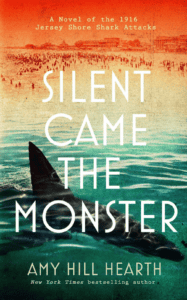You’ve just finished your masterpiece. You know it’s good. You’re ready to move forward and take the next step.
But what is the next step?
You need to be sure you have a great title. Are you certain that your working title is the best you can come up with? The title is the enticement that your readers need to open the book and start reading. If the title isn’t inviting, and appropriately descriptive of the work, you won’t attract many readers. As the author of eleven published books in a variety of genres, I have a few practical tips that may help.
1. You Never Know When, Or How, You’ll Find Your Title
I’ve had titles that came to me very quickly, and others where I struggled. There is no magic formula.
One of my best titles came about in an entirely unexpected way. Having Our Say: The Delany Sisters’ First 100 Years, my first book, was published in 1993 but is still popular today. The book is an oral history of two centenarian sisters, Sadie and Bessie Delany, who were the daughters of a man born into slavery. One day, while I was interviewing them, the “younger” of the two sisters (she was 101 years old!) said suddenly about the process: “This is fun!! We’re having our say!!” And I thought, Hmm…Having our say…could that be a title?!
The book was a New York Times bestseller for more than two years, and was adapted to Broadway and for an award-winning film. So, yes, I think it’s safe to say that title was a winner.
The title of my new book, Silent Came the Monster, did not come nearly as easily. This was one I really fretted over. Strangely enough, just when I thought I would never find the perfect title, it came to me in my sleep one night. I literally dreamed it. I woke up, knew it was exactly what I wanted, and wrote down the words. (The subtitle, A Novel of the 1916 Jersey Shore Shark Attacks, came later.)
And that was that. (Phew!)
2. The Title Must Reflect the Content of Your Book
Your title can’t be cute or clever if your subject matter is dark and grim. If it’s a thriller, it should be, well, thrilling. If it’s Southern fiction, by all means, find your inner Lewis Grizzard, the late author of They Tore Out My Heart and Stomped That Sucker Flat. Southern fiction almost invites quirkiness in a title. In most other genres, be careful. If you’ve written a business book, or self-help, play it safe and choose a respectful title. Think carefully. Does your title idea truly mirror the content and tone of the manuscript?
3. The Title Should be Memorable
This is crucial. At least one word of your title must be easy to remember. Ideally, the whole title should be.
We live in a frantically-busy world. Attention spans are shrinking. Distraction is everywhere. If someone comes across your title on social media but doesn’t have time to check it out, you want them to be able to find it later. It seems more important than ever to choose a short, punchy title followed by a longer subtitle.
The fastest way to check to see if your title idea has been used already is to do an online search.
I have author-friends who swear by three-word titles. Others insist that the magic number is four. You might aim for alliteration in the title or at least a certain “flow” or rhythm to the words. An example of good “flow” is Maya Angelou’s I Know Why the Caged Bird Sings.
4. The Title Must be Easy to Say Aloud
No one ever thinks of this, but your title needs to be “sayable.” You will be saying this title aloud, over and over again, perhaps for the rest of your life. You will say it to friends, strangers, at book-signings, and possibly, on the radio or in virtual appearances. If there is a word you’d like to use in your title that is clunky or difficult to pronounce, don’t give in to the temptation. You don’t want to spend any time in interviews or even casual conversations repeating your title until people understand what you’re saying. Here’s an example: With my book Silent Came the Monster, I very much wanted to use the word “rogue” in my title or subtitle. The legendary Jersey Shore shark of 1916 is often referred to as a “rogue” shark, and I simply like the word. While it’s a word that looks good in print, it’s downright clumsy to say aloud, so I skipped it.
5. Aim for Originality
Your book is special, right? Your title should be, too. Don’t use a title that is uncomfortably similar to the title of another book, and avoid, at all costs, using an identical title. At the very least, it’s considered very poor manners. Besides, why would you want your book to be confused with someone else’s? Your book – and title – should stand on their own merits. A good subtitle is indispensable in this regard, because you can use it to clarify what your book is about.
The fastest way to check to see if your title idea has been used already is to do an online search.
6. Finding your Title Organically is Best
Hopefully, a great title will leap into your mind while you’re writing the manuscript. If it doesn’t happen then, be open to the possibility that it will occur while you’re revising. You may have written a great title already but not realized it. A word or phrase may jump off the page.
No one ever thinks of this, but your title needs to be “sayable.
Some authors start with a title. They think of a great title and then write the entire book around it. I’ve never done that, and probably wouldn’t. Each of my books (both fiction and nonfiction) has veered from an initial concept to something better during the process of writing it. I wouldn’t want to be “locked in” to a title from the beginning. Allowing a manuscript to evolve leads to a better book, in my opinion. (An exception might be if you’re planning a series. In that case, you may want to plan your titles in advance.)
7. What to do if You’re Stuck in Title Purgatory:
If you can’t come up with a title you love, spend some time studying the books on your shelves. What appeals to you? Why do some titles work better than others? Jot down your favorites. Even better, walk around your local library or favorite bookstore, and write down the best titles. Be sure to focus on books from your own genre.
If this doesn’t jump-start your creativity, then the next step is to brainstorm constructively.
Note that I said constructively. You won’t find a great title by staying up all night, trying to think of one in desperation while eating bags of chips and watching Netflix with the sound off. (I’ve tried. It doesn’t work.) Instead, you must be very deliberate. Sit in a quiet space and reflect on what your book means to you. Go back to the beginning. Why did you write it? What are the major themes? What do you hope to convey? Write these thoughts down in full sentences.
If you’re still unsure, make a list of words when thinking about your book. You should come up with dozens. Review the list until you have three or four words that truly speak to you. Write each one down on a separate piece of paper. Place them in random order on an empty tabletop. Stare at them. Walk away, then try moving them around in a different order. Ask someone else – a person whose opinion you respect, and who understands you – to take a look.
This is how the title came about for my tenth book, Streetcar to Justice: How Elizabeth Jennings Won the Right to Ride in New York, a nonfiction book, middle-grade to adult, which won the Septima Clark Book Award from the National Council for the Social Studies. I came up with a list of dozens of words that I believed were relevant. I narrowed my list down to a few. Two of those words were “streetcar” and “justice.” Demonstrating that a pair of fresh eyes can make all the difference, my husband walked into the room, saw the sheets of paper with individual words on them, and said, “Why not just call it Streetcar to Justice? And that was that. Everyone from my agent to my publisher loved it.
Last but not least, if you are really, truly stuck, consider taking a break from the process for a few days or longer. Go for a walk, see a play, have lunch with a friend.
Have faith in your creative process. Tap into the same energy and confidence that it took to write a book in the first place. It’s worth the investment of effort to find the right title. You owe it to your readers. And, you owe it to yourself.
 Amy Hill Hearth, who lives at the Jersey Shore, is a New York Times, Washington Post, and USA Today bestselling author and a Peabody Award winner. She writes nonfiction as well as fiction, and books for both adults and young readers. This is her first thriller. Her areas of interest include American history,
Amy Hill Hearth, who lives at the Jersey Shore, is a New York Times, Washington Post, and USA Today bestselling author and a Peabody Award winner. She writes nonfiction as well as fiction, and books for both adults and young readers. This is her first thriller. Her areas of interest include American history,  elder wisdom, and forgotten or little-known stories. Her ancestors, who include a Lenni-Lenape woman, called the Jersey Shore home for many generations. You can read more about her at www.AmyHillHearth.com.
elder wisdom, and forgotten or little-known stories. Her ancestors, who include a Lenni-Lenape woman, called the Jersey Shore home for many generations. You can read more about her at www.AmyHillHearth.com.
Socials:





